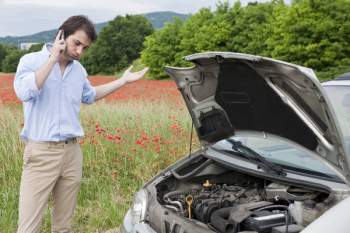
All You Need to Know About Defensive Driving

What is Defensive Driving?
Defensive Driving is an ideology rooted within the methodology involved with regard to the safe operation of a motor vehicle. Individuals who undertake the operation of a motor vehicle do so under the pretense that the implicit dangers and risks are undertaken within the expressed consent of an individual motorist.
Defensive Driving constitutes an ideology that is heavily reliant on the facilitation of preventative and precautionary tactics and maneuvers undertaken by drivers participating and certified by Defensive Driving programs; Defensive Driving teaches individual participants techniques formulated by the anticipation of potential dangers existing on public roadways.
Aspects of Defensive Driving
The protocols for the lawful, safe, and legal operation of motor vehicles may vary from state to state with regard to the receipt of driving license. Due to the fact that the attainment of a motor vehicle operator’s license varies on a jurisdictional basis, the implementation of Defensive Driving allows for individuals certified in this methodology to implement a uniform and applicable methodology with regard to the operation of a motor vehicle; the following methods, techniques, and ideologies are common within Defensive Driving programs:
Defensive Driving Methodology
Individuals certified in Defensive Driving techniques primarily institute a methodology allowing them to assess roadway conditions, fellow motorists, and environmental hazards existing in conjunction with their respective operation; upon the level of cognizance belonging to an individual certified in Defensive Driving is considered to be heightened.
Defensive Driving Hazards
The following circumstances are considered to be hazards within Defensive Driving programs:
Impaired Driving; resulting from the consumption of alcohol, illegal drugs, or controlled substances
Operation of a motor vehicle while fatigued, injured, ill, or tired
The Operation of a motor vehicle while using a handheld cellular telephone
Operation of a motor vehicle in contrast with expressed signage and regulations
Defensive Driving Requirements
Routine and scheduled maintenance with regard to the operation of a motor vehicle
Routine and scheduled inspection of motor vehicles belonging to operators
The required updating of all certifications, licenses, and safety courses required by applicable Defensive Driving courses
Locating a Defensive Driving Program
Individuals who desire to further maximize safety and functionality within their respective operation of a motor vehicle have been manifested within a structured program that promotes and engages Defensive Driving. Upon the investigation of Defensive Driving courses, individuals are encouraged to undertake courses both acknowledged and accredited by their respective Department of Motor Vehicles (DMV):
Within modernity, the term ‘Defensive Driving’ has become a catchall classification – although the precepts within a Defensive Driving program are uniform, individual titles of accredited Defensive Driving courses and programs may not be
The Department of Motor Vehicles (DMV) is a general classification for the department that regulates issues concerning the operation and maintenance of motor vehicles within the United States; the Departments of Motor Vehicles both promote and endorse the safe, legitimate, and legal operation of motor vehicles through the proliferation of Defensive Driving
Due to the presumed effectiveness of Defensive Driving, a wide variety of insurance plans and companies will allowed for reduced rates and fees to clients successfully completing Defensive Driving courses
NEXT: 1990 to 2008 Car Accidents Statistics





















